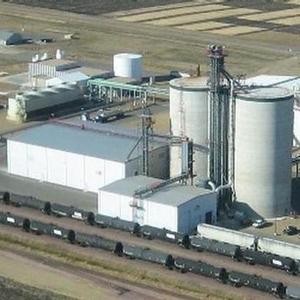EPA names 10 more efficient corn ethanol producers

Highwater Ethanol LLC
February 10, 2015
BY Susanne Retka Schill
Ten more corn ethanol plants were approved through the U.S. EPA’s efficient producer petition process (EP3) at the end of January, bringing the total to 19. The first round of nine approvals were announced in December.
The 10 corn ethanol plants include Badger State Ethanol LLC, Green Plains Ord LLC, Lincolnland Agri-Energy LLC, Tharaldson Ethanol Plant 1 LLC, Dakota Ethanol LLC, Green Plains Shenandoah LLC, Lincolnway Energy LLC, Farmers Energy Cardinal LLC, Highwater Ethanol LLC and Quad County Corn Processors.
Late last year, the EPA streamlined the petition process used by producers wanting to demonstrate above-average greenhouse gas (GHG) reductions. Ethanol producers must provide the bushels of corn processed, their natural gas and electricity consumption and the gallons of ethanol produced, which are then plugged into a new GHG calculation tool developed by the agency.
Under the current renewable fuels standard program(RFS), the production volume of existing corn ethanol plants was grandfathered in, and any new production above the gallons registered with the EPA are required, by law, to meet the 20 percent GHG reduction threshold when compared to the baseline gasoline. The average GHG reduction value for corn ethanol plants in the original 2010 modeling done by EPA was about 17 percent, including controversial indirect land use change emissions. Energy efficiency improvements and ethanol yield gains mean 19 ethanol producers can demonstrate GHG reductions better than 20 percent.
Advertisement
Advertisement
Watch for a feature article, “Efficient Producers Up the Ante,” in the March issue of Ethanol Producer Magazine explaining more about the EP3 program. Details regarding an upcoming webinar covering the topic are to be announced in the next week or so.
Advertisement
Advertisement
Related Stories
The U.S. EPA on July 8 hosted virtual public hearing to gather input on the agency’s recently released proposed rule to set 2026 and 2027 RFS RVOs. Members of the biofuel industry were among those to offer testimony during the event.
The USDA’s Risk Management Agency is implementing multiple changes to the Camelina pilot insurance program for the 2026 and succeeding crop years. The changes will expand coverage options and provide greater flexibility for producers.
EcoCeres Inc. has signed a multi-year agreement to supply British Airways with sustainable aviation fuel (SAF). The fuel will be produced from 100% waste-based biomass feedstock, such as used cooking oil (UCO).
President Trump on July 4 signed the “One Big Beautiful Bill Act.” The legislation extends and updates the 45Z credit and revives a tax credit benefiting small biodiesel producers but repeals several other bioenergy-related tax incentives.
CARB on June 27 announced amendments to the state’s LCFS regulations will take effect beginning on July 1. The amended regulations were approved by the agency in November 2024, but implementation was delayed due to regulatory clarity issues.
Upcoming Events










